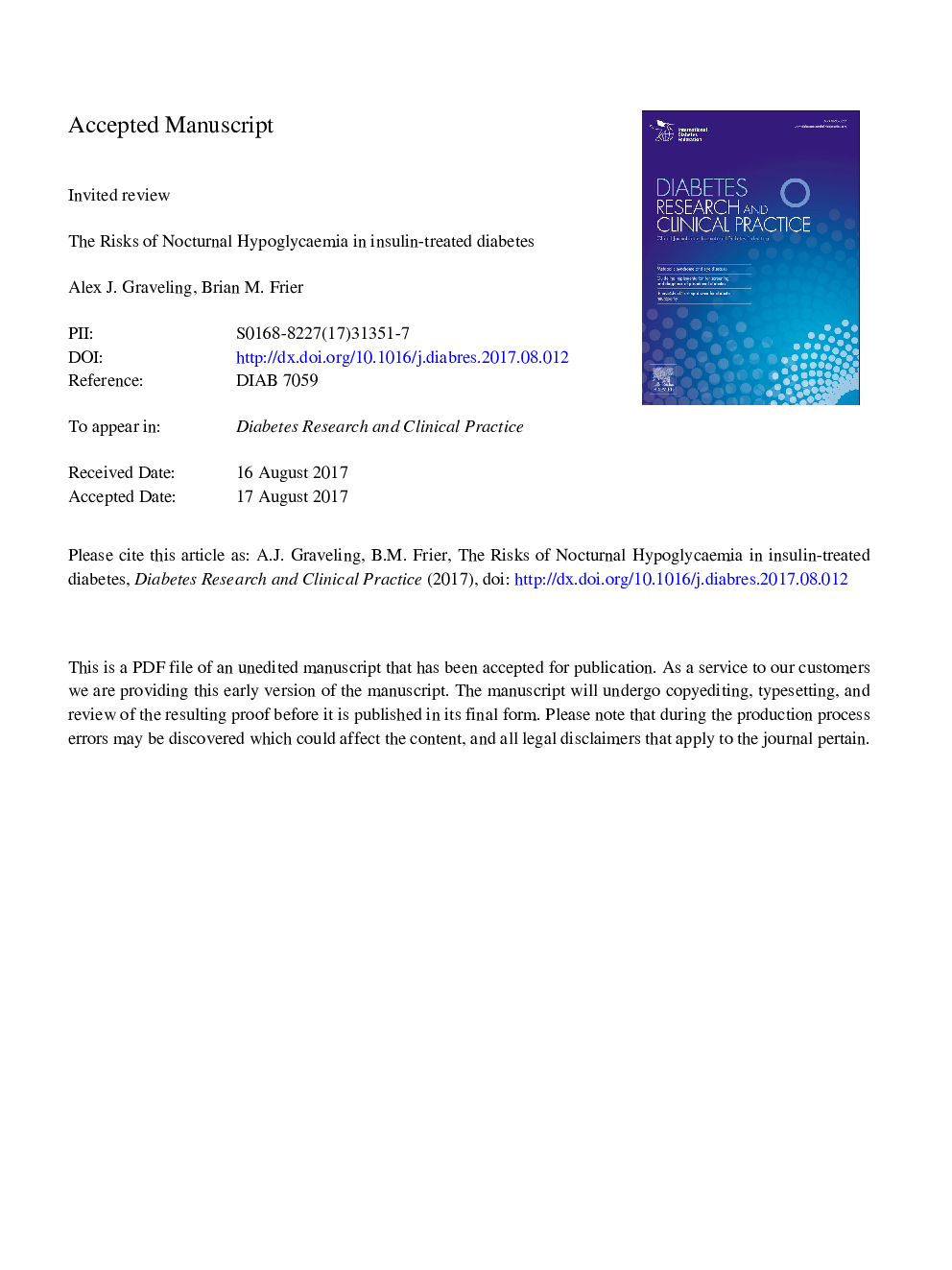| Article ID | Journal | Published Year | Pages | File Type |
|---|---|---|---|---|
| 5587206 | Diabetes Research and Clinical Practice | 2017 | 26 Pages |
Abstract
Over half of all episodes of severe hypoglycaemia (requiring external help) occur during sleep, but nocturnal hypoglycaemia is often asymptomatic and unrecognised. The precise incidence of nocturnal hypoglycaemia is difficult to determine with no agreed definition, but continuous glucose monitoring has shown that it occurs frequently in people taking insulin. Attenuation of the counter-regulatory responses to hypoglycaemia during sleep may explain why some episodes are undetected and more prolonged, and modifies cardiovascular responses. The morbidity and mortality associated with nocturnal hypoglycaemia is probably much greater than realised, causing seizures, coma and cardiovascular events and affecting quality of life, mood and work performance the following day. It may induce impaired awareness of hypoglycaemia. Cardiac arrhythmias that occur during nocturnal hypoglycaemia include bradycardia and ectopics that may provoke dangerous arrhythmias. Treatment strategies are discussed that may help to minimise the frequency of nocturnal hypoglycaemia.
Related Topics
Life Sciences
Biochemistry, Genetics and Molecular Biology
Endocrinology
Authors
Alex J. Graveling, Brian M. Frier,
